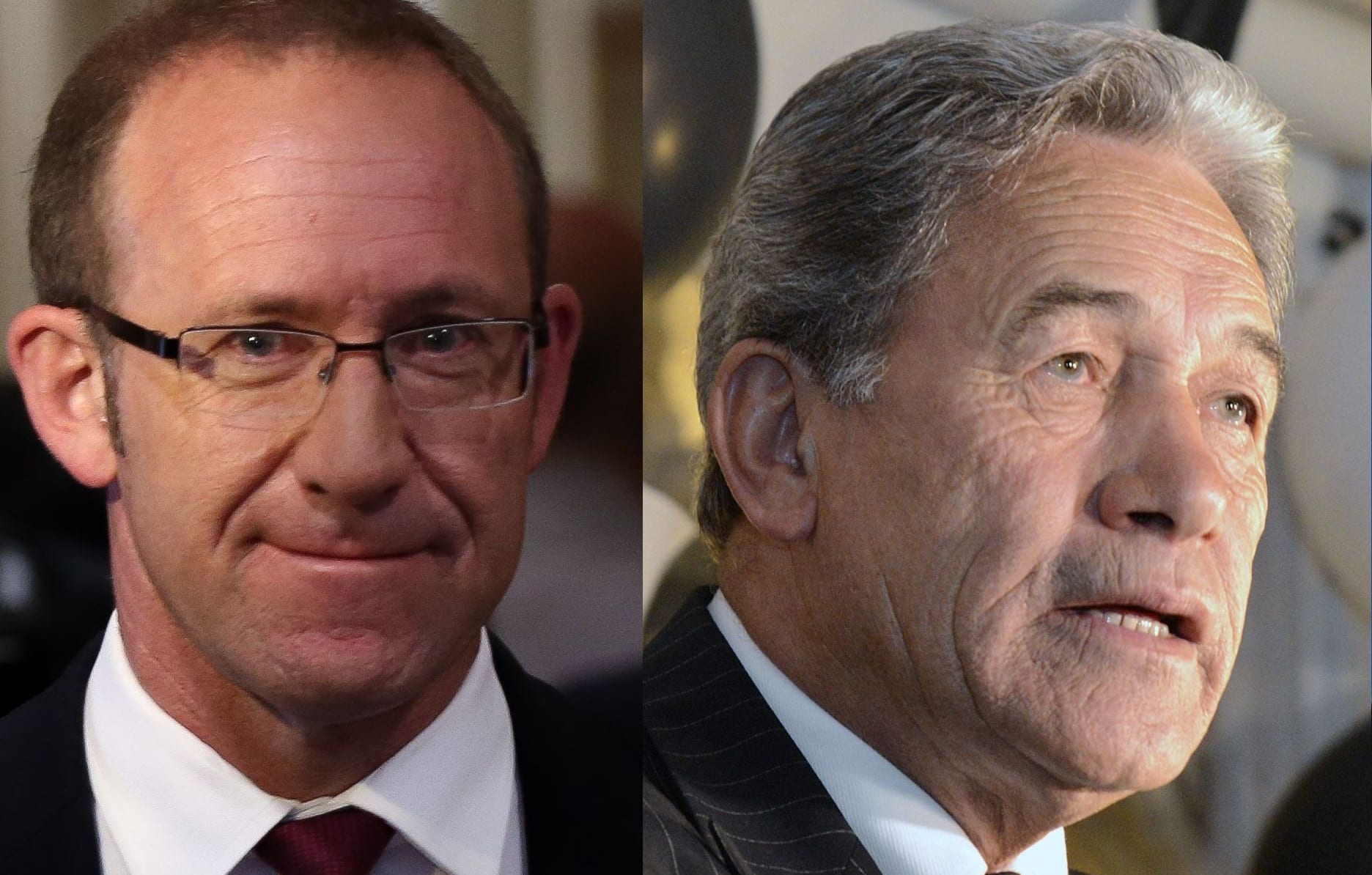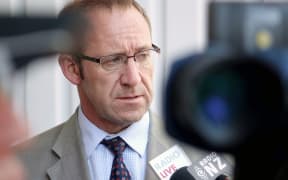Labour leader Andrew Little has nominated New Zealand First leader Winston Peters to sit on Parliament's Intelligence and Security Committee.

Andrew Little, left, has nominated Winston Peters to sit on Parliament's Intelligence and Security Committee. Photo: RNZ
The committee, chaired by the Prime Minister Bill English, and has parliamentary oversight of New Zealand's intelligence agencies.
Former Labour Party leaders Phil Goff and David Cunliffe nominated the-then Greens co-leader Russel Norman to sit on the committee.
When Mr Little took over he gave that place to fellow Labour MP and foreign affairs spokesperson David Shearer.
That position became available with Mr Shearer's recent departure from Parliament, and Mr Little has confirmed Mr Peters, a former Foreign Minister, as his replacement.
"He's had ample experience of briefings from the intelligence and security committees." said Mr Little. "He'll now what their work is, how they operate."
"There's only a few months left of this Parliament this committee can meet and I just judged that it was best to have that level of experience straight away," Mr Little said.
Mr Peters said his experience as a politician, and a former Foreign Minister, would be put to good use on the committee.
"I have been there before, I don't think that we've covered ourselves with glory on this issue, particularly on the Kim Dotcom fiasco and I think we need to tidy our act up."
Mr Peters said this nomination meant absolutely nothing in terms of a possible working relationship with Labour after the election.
"It means that they needed to find a person to replace Mr Shearer, a person who had the experience.
"I am not unhappy to serve on the committee, I think it's my responsibility and that's all it means, that the security issues of this country and the intelligence issues of this country, and more particularly the civil rights of New Zealanders in that circumstance are matters of concern."
The Prime Minister said he would rather have Mr Peters on the committee than other opposition parties like the Greens.
Mr English said while it was ultimately up to Mr Little, he was happy with the nomination.
"Winston Peters is their nominee, he's certainly preferable to some of the other parties, particularly the Greens, who basically don't believe in security and intelligence services, but we know Winston Peters is familiar with the need for it."
The Greens co-leader said while they supported Mr Peter's nomination, it was important to have dissenting voices around the table.
"We actually think the agencies should be restructured... you actually need one party at least that has a critical view of how those services are operating.
He hoped the committee would be restructured to be much more representative in the future.
Mr Shaw said he was not worried about Labour backing New Zealand First, therefore excluding the Greens.
"I think it's a good thing, I mean I think it demonstrates we can work with New Zealand First in the event that their numbers will be required after an election."
At the start of the year when Labour and the Greens held a joint event in line with their Memorandum of Understanding they agreed to disagree about the necessity of New Zealand even having intelligence agencies.
Mr Little said the Greens agreed with Mr Peters' nomination.
"They've got a legitimate concern about the powers that we give our security and intelligence agencies. Winston Peters shares those concerns too. He will be a fierce advocate for ensuring that citizens' rights are properly protected and preserved."
Mr Little was asked whether this was a clear signal about a possible working relationship with New Zealand First after the September election.
"In the end, we have to demonstrate to New Zealand at large that we can be constructive and mature about these things and I think this recommendation for this appointment reflects that."
Mr Little will also table an amendment to new intelligence legislation for broader parliamentary representation on the committee, when that bill came back to Parliament.



